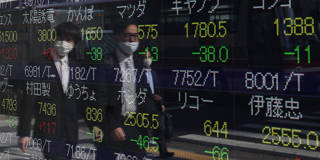
Rising US Interest Rates Won’t Trigger Another Asian Financial Crisis
The ASEAN+3 economies are stronger and more resilient today than they were in the late 1990s. As a result, tighter US monetary policy may lead to higher borrowing costs and trigger portfolio outflows similar to the “taper tantrum” of 2013, but a full-blown 1997-style financial crisis in Asia is unlikely.
SINGAPORE – Hawkish shifts in the US Federal Reserve’s monetary policy have often led to heightened financial and economic stress in emerging economies. In the early 1990s, the Fed raised interest rates preemptively to curb inflation, precipitating the 1994 Mexican “tequila” crisis. In 2013, the Fed signaled its intention to tighten monetary policy, resulting in the major emerging-markets sell-off known as the “taper tantrum.”